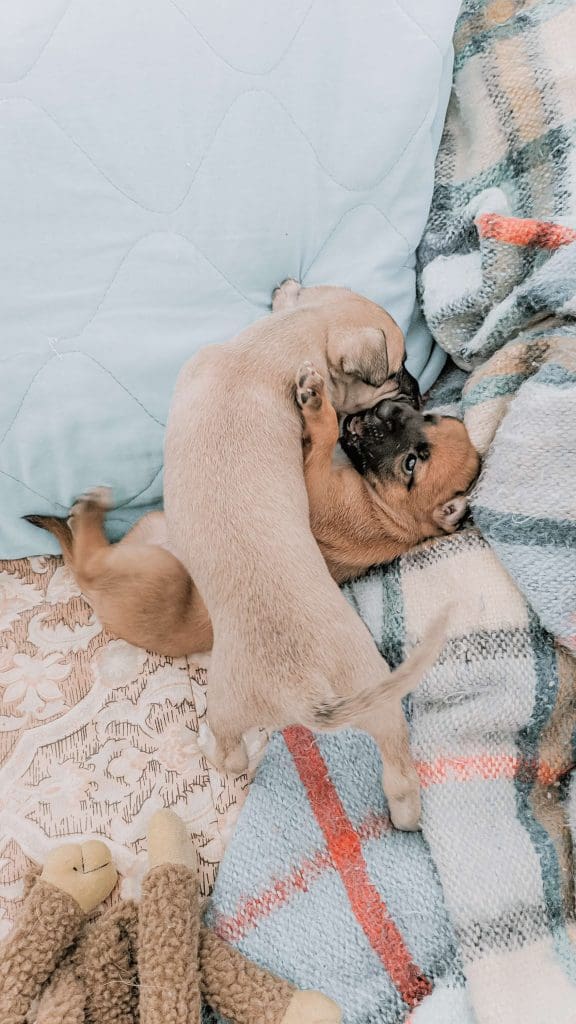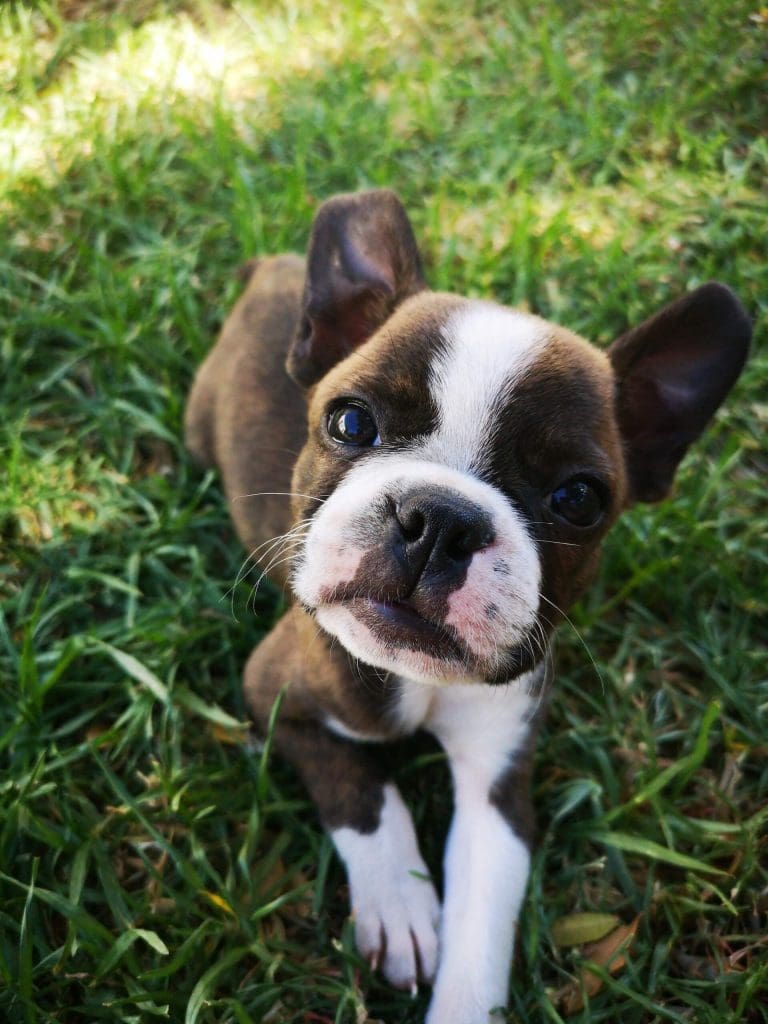It’s always tough for pet parents when their puppy is feeling under the weather, but prolonged diarrhea can be life-threatening.
Unlike mature dogs, with their bodily reserves of fat and water, puppies can quickly succumb to dehydration. If you notice your pup is having loose or watery stools, it’s important to monitor them closely for signs of distress. Diarrhea that is accompanied by additional symptoms or doesn’t resolve quickly warrants a visit to the emergency vet.
 Common Causes of Diarrhea in Puppies
Common Causes of Diarrhea in PuppiesBecause puppies’ immune systems are still developing, they are particularly vulnerable to a number of conditions that can cause diarrhea.
Here are a few of the likely suspects.
Young dogs are frequent hosts for intestinal parasites like hookworms, roundworms, and tapeworms.
Even if you don’t notice mature worms in your puppy’s stool, they can still experience symptoms as these uninvited guests leach nutrients from their gastrointestinal system.
A parasitic infection is also likely to be accompanied by:
A veterinarian can determine the specific type of parasite your dog is harboring and prescribe an effective deworming medication.
Puppies rely on a clean environment to avoid becoming infected with harmful germs. Contaminated food or drinking water can harbor bacteria like E. coli, listeria, and salmonella – all likely to cause severe, prolonged diarrhea.
In addition to keeping your puppy’s living space sanitary, it’s important to adhere to your vet’s recommended vaccination schedule. You can greatly reduce your pet’s risk of contracting deadly wasting illnesses like parvo and distemper with preventative care.
An older dog who rifles through an overturned trash can may experience an upset stomach, but this is even more true for puppies.
Foods that are unfamiliar, excessively rich, or expired can trigger a bout of diarrhea. Fortunately, watery stools brought on by off-limits food should resolve within a few hours.

Just like humans can experience stress in our stomachs, your puppy’s diarrhea can be in response to a scary new experience or schedule change.
Routine is very important for a growing pup, so keeping their day as predictable as possible should reduce stress and improve digestion. Keep a close eye out, however, and visit your vet if diarrhea persists for more than a day or two.
Diarrhea that doesn’t resolve on its own within 24-48 hours should be treated as a veterinary emergency.
If the watery stools have an obvious cause (for example, pizza left on the coffee table) watch your puppy closely to ensure that diarrhea resolves once the irritant has passed through their system. Don’t hesitate to seek help if you notice:
One of the greatest dangers of diarrhea in puppies is the risk of dehydration. Encourage your dog to drink by keeping clean water nearby at all times.
Wait to bathe your puppy until their diarrhea has resolved. Wetting your dog can lower their body temperature and make them more vulnerable to infections.
Your vet can determine if IV fluids are needed to rehydrate your pup and prescribe medicines to relieve diarrhea. They may also recommend a bland diet, like boiled chicken and rice or canned pumpkin, to help replenish lost nutrients and electrolytes while your pet recovers.